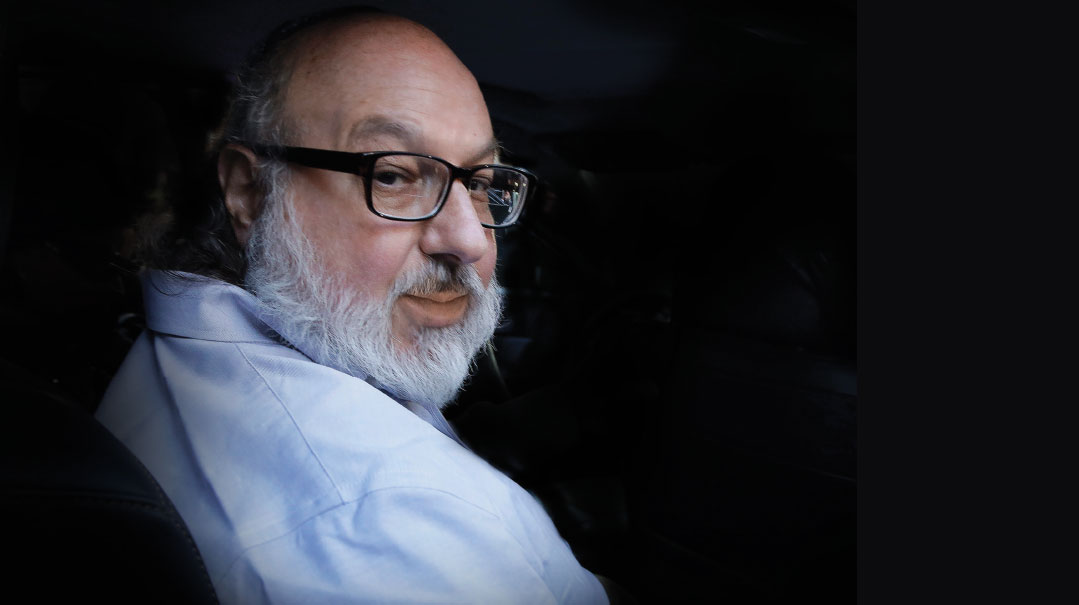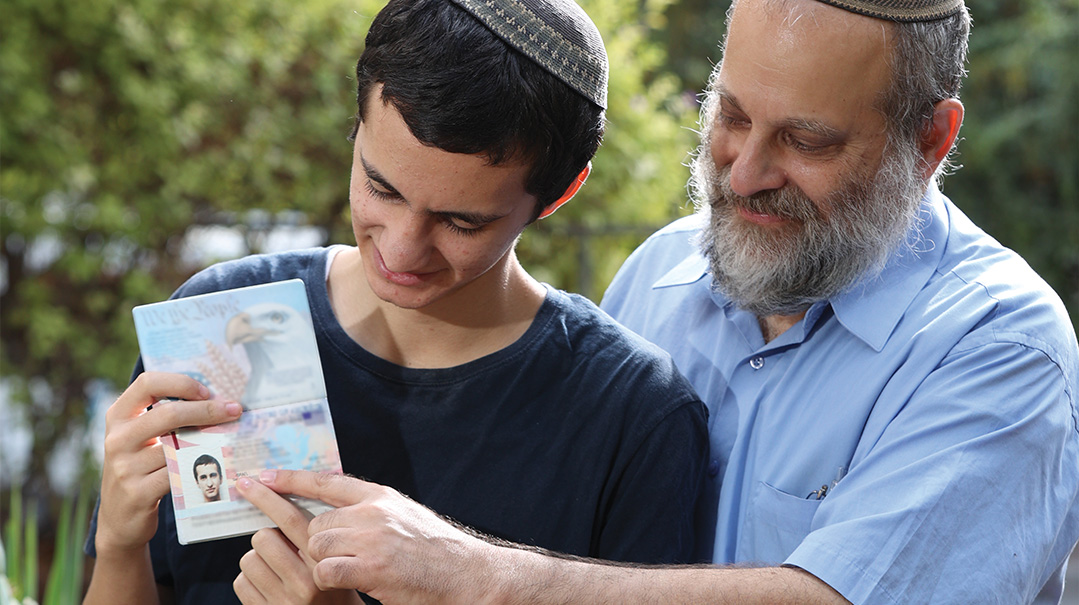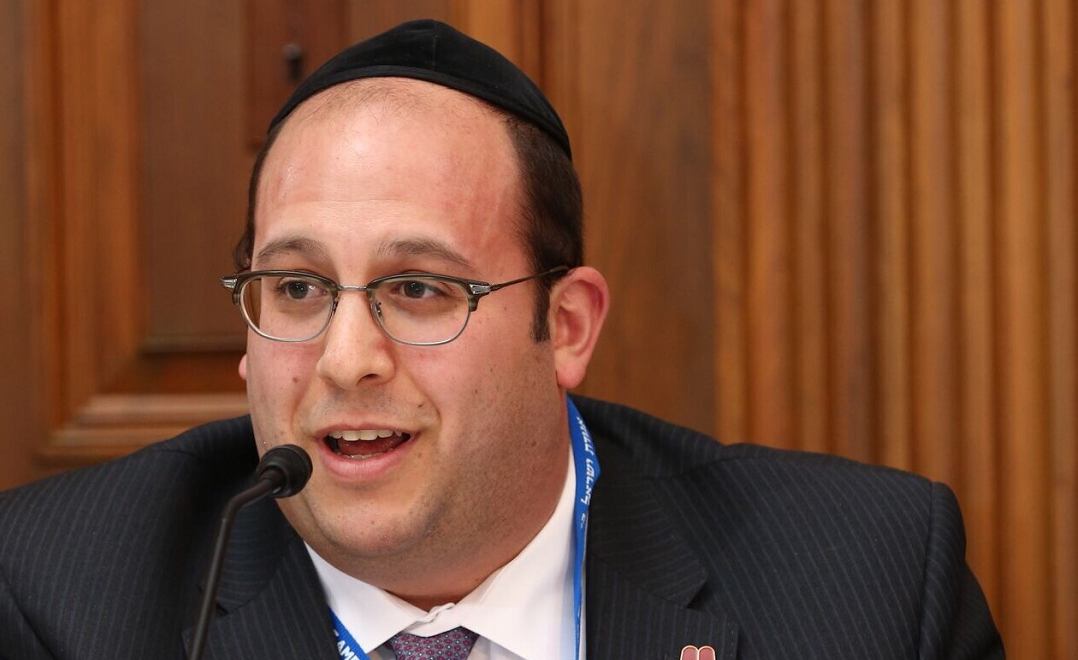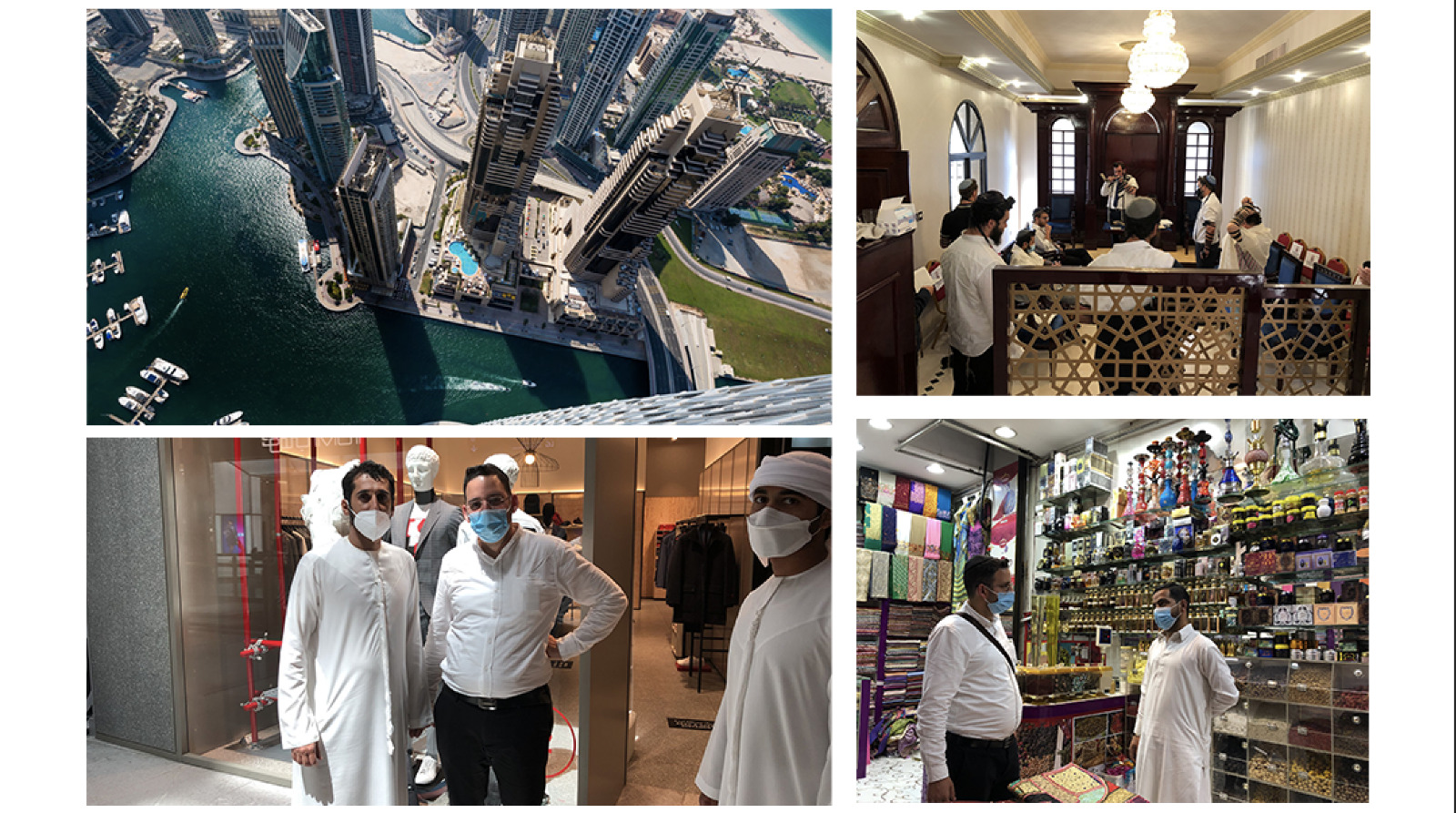Return to Your Borders


One man's struggle to rescue his fellow Jews stranded in Sudan
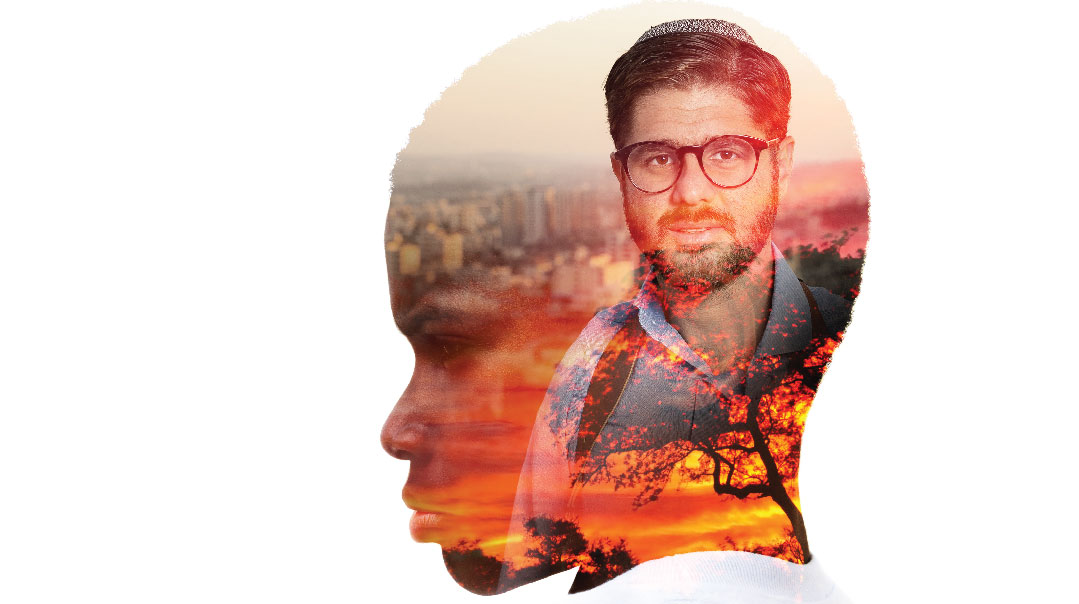
Photos: Mishpacha Archives
Back in 1984, a young Ethiopian Jewish girl named Tuwavich Berko said goodbye to her two older brothers as they set out by foot across the Sudanese desert, where they hoped to be airlifted to Israel. That was the time of Operation Moses, a clandestine Israeli rescue operation that began shortly after a devastating famine swept through Ethiopia, threatening the survival of the local Jewish community. Ethiopian Jews had been making their way to southern Sudan from 1980, where over the next four years about 3,000 of them would be rescued either through neighboring Kenya or by Israeli commando boats via the Red Sea. Now, thousands of Ethiopian Jews trekked through the deserts of Ethiopia and Sudan with the hope of reaching Sudanese refugee camps where they would be saved by Israeli rescue teams.
Over 8,000 of them made it to Israel during the six-week airlift operation, but it’s estimated that another 4,000 died during the arduous journey — either by starvation, dehydration, or attacks by local militias. While Tuwavich stayed behind with her ailing father, she had no idea whatever happened to her brothers, or to any of her neighbors who longed for Jerusalem and traversed the desert in order to get there. Did the Israeli planes come for them? Were they slaughtered by Sudanese insurgents along the way? Did they succumb to the elements?
Seven years later, in 1991, Israel embarked on Operation Solomon, a record-setting 36-hour operation in which Israel airlifted another 14,000 Ethiopian Jews from the capital of Addis Ababa. But Tuwavich was no longer in Ethiopia. In between those two rescues, Tuwavich’s father had passed away, and she decided to cross the border into Sudan to meet her hoped-for Israeli rescuers.
Instead, she was arrested and thrown into a Sudanese jail, where the warden took a liking to her. Rather than having her killed, he released her and forced her to marry him — and so, a young teenager with no family behind her and a hopeless future before her, she buried her Jewish past. When the couple had their first daughter, they named her Piath, which means “good.” Piath was followed by another daughter, Suzy.
Among the Sudanese Dinka tribe, which was Tuwavich’s husband’s tribe, when a girl reaches the age of 12, whoever gives the most cows to her father has the right to marry her. Tuwavich’s husband needed the money, and when an older man named Hamis offered him many cows for 12-year-old Piath, she was handed over. When Suzy was 12, she too was given as a wife to the highest bidder.
After Piath had her first child, she fled from Hamis, under whose hand she suffered abuse, and ran back to her mother. But Hamis came after her, took her back, beat her, and even had her thrown onto a cold jail floor without a mattress. After that, she wasn’t allowed any contact with her mother.
Piath’s sister Suzy also suffered in an abusive marriage and was also estranged from her mother. Each of the sisters had three children of their own. Meanwhile, Tuwavich had also separated from her husband, the prison warden — he had moved to the new nation of South Sudan while she stayed in North Sudan with her younger children. But soon all of their lives were about to change forever.
In 2015, Tuwavich saw a newscast of a group of Ethiopian-Israeli Jews who came back to Ethiopia as tourists. She realized that her brothers’ dreams must have come true. The Ethiopian Jews who trekked across the desert back when she was a girl had made it to Israel after all! Perhaps her brothers were still alive — perhaps they were living in Israel too!
Tuwavich didn’t hesitate. She crossed the border to Ethiopia, traveled to the city where she’d seen the story had taken place, and began to search for Israeli Ethiopians, until she found one such couple. She pleaded with them to take her and her family back to Israel — she thought it was that simple. Of course they couldn’t accommodate her wish, but they did try to help: They showed her their smartphone and told her, “We’ll film you with our phone and then we’ll pass the video around in Israel. Maybe you’ll find your family.”
In the little clip she made, Tuwavich identified herself and gave the names of her brothers and parents. She also showed a clear sign of her identification — her palm. When she was a baby, she’d been badly burned, and one finger remained damaged. What was once a childhood tragedy now became her indelible ID. The Ethiopian couple disseminated the clip among Ethiopian groups in Israel with the message, “Anyone know her? She’s looking for her brothers.”
Within a few months, Tuwavitch’s brothers, Yaakov Alamo, a resident of the yishuv Ofra in the Shomron; and Uri Ben-Baruch, a resident of Kibbutz Lavi in the north; discovered their long-lost sister.
They had actually been looking for her for years, but once she was no longer part of the Jewish community, had married a non-Jew, moved to Sudan, and changed her name, they had no way to trace her. The brothers — Torah-observant integrated Israelis — made contact and instructed her to take her family and go to the Jewish community in Gondar, where they would start working on her aliyah.
She did, and that’s where she met a man named Aaron Katsof, who facilitated the dramatic rescue of her entire family — an odyssey that took several years and involved crossing African borders, battling third-world bureaucracy, greasing many palms, and most of all, a huge dose of siyata d’Shmaya.
A
aron Katsof made aliyah from California 15 years ago and is a well-connected community activist living in the Shomron yishuv of Eish Kodesh. He’s traveled to Ethiopia several times over the past few years in order to help the nearly 7,000 Ethiopians who are still waiting to come to Israel, most of whom have some sort of Jewish lineage or relatives in the Holy Land.
“Some are Jewish according to halachah, while others are children of Jewish fathers, but live as Jews in the community,” Katsof relates. There are two such communities, he says. One is in the capital of Addis Ababa and the other in the rural area of Gondar, where most of the Beta Yisrael lived for centuries. It was from there that they trekked on foot to the capital city of Addis Ababa, or across the border to Sudan, where thousands of them were airlifted to Israel in the 1980s and ’90s.
Today, Gondar has access to online and wireless communications, but there’s no running water, indoor plumbing, or electricity. Addis Ababa is a bit more progressive and modern, but in many places there’s running water just once a week, and the low-voltage electricity is only enough to power small items like radio transmitters. Around the city there are still neighborhoods where people live in mud huts.
“When I arrived in Gondar for Shacharis, I found 600 people davening with tallis and tefillin — the whole community davens together three times a day. In the last 20 or so years that there has been a lot of travel back and forth between Ethiopia and Israel,” Katsof says. “They read from the Torah, and their tefillah is like ours, except that part is in Amharic and part is in Hebrew. At the end of each tefillah they sing ‘Am Yisrael Chai’ and Israel’s national anthem, as a symbol that they’re waiting to make aliyah. For Kabbalas Shabbos, they sing the entire tefillah Carlebach style, and they’ve all learned a little Hebrew, including the children. Every month, volunteers arrive from Israel to teach them to read and write Hebrew, and they also have organized Torah shiurim.”
As he was davening, Katsof noticed that one of the worshippers, a teenage boy, had different features than the rest. He didn’t look Ethiopian, but rather like a tribal African.
“After davening, I approached him and asked what his story was. I discovered that his name was Choll, and that he speaks English and Arabic, but not the local Amharic,” says Katsof, who served in IDF Intelligence and speaks fluent Arabic, which is how he communicates on his visits to Ethiopia. “He told me the story of his mother, how she was thrown into a Sudanese prison, forced into a marriage, had children, and how she finally located her brothers after 30 years.”
Choll took Katsof to where he lived — his mother’s mud hut. There, Tuwavitch Berko told him her history in detail. She described her daughter Piath, her daughter Suzy, her third child who drowned in a bucket of water as a baby — and then came Choll, whose name means life. Why life? Because it’s customary to give that name after a child dies and another is born. After Choll, several other children were born, all of whom Tuwavich introduced to Katsof.
“I asked where the daughters were living, and she got choked up and began to mutter all kinds of phrases in Arabic, like ‘Allah yachpizhom’ [Hashem yishmor] and ‘Allah yerachmu’ [Hashem yerachem]. I realized that she didn’t even know if they were alive,” Katsof recalls. “Their husbands kept them estranged and she hadn’t seen them in years.”
That conversation catapulted Katsof into a three-year-long adventure. “At that moment I realized that no one in the world would help them, and if I wouldn’t get involved, these Jewish women would remain in Sudan for the rest of their lives, living with poverty, disease, and violence. I thought of my own daughters — I have six children and the two oldest are girls, and if they would be stuck somewhere dangerous, I would do anything for someone to help them. I had landed up in a place where there was no one else — I had to be that someone. We Jews don’t leave people behind.”
Katsof began a two-pronged campaign: to facilitate the aliyah of Tuwavich and her children, and to locate her two married daughters and rescue them as well. Choll decided to help out, and began an Internet search of people who had grown up in his mother’s village. Meanwhile, Katsof maintained contact with Choll after he returned to Israel and waited for news.
A few months of searching turned up results. Choll found someone who knew his sister Piath, and discovered that she was living in Juba, the capital of South Sudan, a fledgling new nation born out of civil war. He further discovered that she had three children who didn’t live with her, but with her husband’s family, although she had regular contact with them. [It’s a common scenario in Sudan — the default when a woman leaves her husband is that the children are kept with the husband’s family, although the mother maintains regular visitations with them. Many families live this way.] Using an intermediary who had a phone, Tuwavich was finally, after a decade of being cut off, able to speak to her daughter from Ethiopia.
Now it was Katsof’s turn to speak to Piath, after the contact person explained to her that he was a “crazy white person” who wanted to help her.
“I spoke to her and explained that we would get her and the children out, give them a better life, but that we needed to make a plan. Her answer was laconic: oh, yes, fine. She didn’t really believe we would do it,” Katsof remembers. In fact, she didn’t even know she had Jewish blood. “She couldn’t believe it — it was like a huge light went on for her,” says Katsof. “They had learned about the Chosen People, but that she should be a part of them? For her it was a joyous spiritual awakening.
“Still, it was a very complicated situation and I wasn’t sure how we’d proceed — the children were not with her and you have to remember that she was only 22 and a mother of three children, the oldest of whom was 9. Her sister Suzy was 21, and she also had three children, the oldest of whom was seven. And both their fathers were Sudanese tribesmen.”
There is an assumption, at least among those who live in Israel, that every Sudanese would jump at the chance for asylum in Israel, as so many have tried and been sent back. But those are the middle class, the ones who have a bit of education and know a little about the outside world. According to Katsof, for villagers like Piath and Suzy, Israel is a concept they never heard about.
Piath had moved to the city so she became a bit more worldly than those whose entire life centers around their next bowl of rice, but Suzy, who was living in the village of Rumbek, had no concept of dates, time, money, simple arithmetic, or how to read a clock. For her and her children, the challenge would be even greater.
Katsof, however, was undaunted. The easiest way to go from South Sudan to Gondar, Ethiopia, is through North Sudan, but the Mossad agents who worked in the region warned Katsof, who’s still well-connected with Israeli Intelligence, not to enter North Sudan. The entire route was war-torn, and the Muslims were known for the wanton murder of members of the Dinka tribe.
It took a few more months to find a solution, but he found someone who would move the two sisters from South Sudan east to Uganda, then Kenya, and then back up north to Ethiopia. Katsof flew to Uganda to facilitate the operation, and after days of travel over dusty roads and rickety buses, the sisters were finally reunited with their mother, Tuwavich, in Gondar.
But even so, the State of Israel had not been in any hurry to bring the family to Israel. During the year that Tuwavich had waited with her younger children in Gondar, no background checks had yet been done. Once Katsof got involved to expedite the process, DNA tests were required in order to affirm that she was indeed a relative of her brothers in Israel. The family in Israel paid for the tests, and Katsof took Tuwavich to Addis Ababa to have it administered. Once the test showed 100 percent compatibility, the aliyah process could begin under the authority of the Interior Ministry — but between the petition in an Israeli court by family members in Israel, hearings and additional investigations, the process would take a year at least.
Then Piath and Suzy, Tuwavich’s married daughters, discovered that they were not part of the aliyah petition. Tuwavich didn’t want to leave without all her children, especially as she’d just been reunited with her two oldest daughters after a decade. And even if her daughters would be granted permission for aliyah, they wouldn’t leave without their children. For Aaron Katsof, that would be another project. And so, he set his mind to those children left in dangerous, war-torn, oppressive South Sudan, a country of illness and poverty where half the population suffers from malnutrition and human-rights abuses, and where one in ten children won’t reach their 18th birthday.
Katsof flew back to Uganda, which borders South Sudan, determined to get the scrawny, malnourished children to Israel. He reached out to an organization called Come True, which brings South Sudanese children to Uganda to give them proper schooling and can send them to other countries of their choice. Katsof convinced them to offer Piath’s estranged husband, Hamis, an opportunity for a better life for his children by letting them study in Israel, where Come True has volunteers. It was objectively a good offer — a much better alternative to letting them die in Sudan. In addition, the organization upped the ante by offering Hamis a better job than he had in Sudan.
For Hamis, it seemed like a good opportunity all around, but then he decided to consult the local Dinka tribal witch, who told him that his wife wanted to steal the children. Then tragedy struck: Piath and Hamis’s four-year-old daughter died of malnutrition and dehydration. For Hamis, it was a sign that he had to help his remaining two children live, and so he agreed to bring them to Uganda.
“We signed him on a document that the children were the responsibility of the organization, and they could put them into whichever school they wanted, even in Israel, and he agreed,” says Katsof. “Now we had two African children with a maternal grandmother from Beta Yisrael. But they were African kids, and they were terrified of me because they’d never seen a white person. I was able to communicate with them in Arabic, but when I offered them chocolate, they refused to take it because they thought I was a witch trying to fatten them up so that I could eat them. Eventually I won them over with my smartphone. They were enthralled by the concept of a selfie. They’d never even seen a picture of themselves. So we became friends — I never planned this, I just sort of got sucked into it, but still, I felt this neshamah connection to them almost like my own children — and I took them across the border into Kenya, using the same route that worked for their mother.”
Several checkpoints in Kenya passed peacefully. But at one of them, the immigration clerk was afraid that something wasn’t right. He said that a document was missing and decided to detain Katsof on suspicion that he was trading minors, a crime punishable by a minimum of 20 years in prison. According to the local law, the detainees would be allowed to meet with a lawyer… within four months.
“They put me in a detention cell with the children,” Katsof relates. “Now, I knew I’d be okay — I have powerful friends and I wasn’t scared for myself. But I knew the kids needed a big yeshuah — they were unwitting Yiddishe neshamos that might die if they were sent back to Sudan. A minute before they confiscated my phone I sent an urgent text to friends in Israel: If you know someone in Kenya, we need urgent help.
“One of my friends has some high-level African contacts and connected me with a local politician named Pastor Dennis Nthumbi. Dennis is a Bible aficionado and believes in the pasuk ‘And I will bless those who bless you.’ He believes that anyone who helps Jews will be blessed. He helped me navigate the system and bailed me out, signing on a million Kenyan shillings to get us released.”
Katsof would be in Kenya several weeks until this legal fiasco would get straightened out, but he didn’t waste time. He spent those weeks forging more ties, among them with a South Sudanese priest who happened to be visiting Kenya.
“When I met him, he told me about life in Juba, in South Sudan, and how people are starving, how they go to the UN to get a sack of rice, how much they are suffering in the wars. And I gave him 200 dollars. I told him, ‘This is charity for your activities,’ and I said to myself, ‘ “Shelach lachmecha — cast your bread upon the waters…” Who knows what it can bring?’
“We took the children to a nice hotel and shared our provisions. The girl asked for something — it was an orange, and after I taught her to peel it, she tasted it but didn’t eat it. She couldn’t get used to the taste. In the end she ate farina. When supper arrived, she asked: ‘Why are we eating? We ate in the morning.’ They were used to eating just once a day. They were so, so thin, and not healthy.”
After purchasing new clothing and a smartphone for the father (which they taught him to use), he agreed that, as a loving father who wanted the best for his own children, sending them on to a better life with Katsof was really their best option.
Katsof and the children, now accompanied by Nthumbi, continued on to Gondar. But the journey wasn’t over yet. When they arrived in Ethiopia, they learned that Israel demanded a passport for the children, original birth certificates signed by South Sudan’s foreign minister to authenticate them, and a signature from the father, in front of the Israeli ambassador, on a document allowing the children to come to Israel. Katsof was ready to give up: There was no way he could get these documents! But the local ambassador encouraged him. “You have a list — just follow it. Millions of Africans would die to get such a thing.”
“That night, I cried; I was sure I had lost the children,” Katsof relates. “I gave Hamis an envelope with $500, and we flew Hamis and the children back to South Sudan. Meanwhile, I kept up the pressure to have the young women included in the aliyah petition, until finally, Piath was also included and was able to begin the process. Suzy, for her part, went back to her children in South Sudan, and she got stuck there.”
Meanwhile, back in Israel, Katsof’s two oldest daughters, 12 and 14, were rooting for him and kept telling him not to give up. “They were my partners,” he says. “Every day they and their classmates would say Tehillim for my success.”
But not everyone in the family was happy with Katsof’s drawn-out Ethiopian foray. “My mother-in-law sent me an e-mail telling me, ‘Get out of there and come home already — your family needs you.’ But I explained to her what I’d learned from my rebbi, Rav Noah Weinberg ztz”l, who taught us that when you’re taking care of G-d’s children, G-d will take care of your children. If I leave these kids here, they’ll wind up back in Sudan and who knows if they’ll even survive? I’m taking care of them, so this is the biggest gift I can give to my own children.”
And so Katsof, in Gondar to prepare Piath for aliyah, called Hamis every day about the documents. Hamis said he was working on it, but for the most part, he didn’t answer the phone. Katsof was pretty sure he’d pocketed the money, and would only be in touch when he’d need more. That was it, Katsof thought. It was all over.
Yet just as he was about to give up totally, he told himself that before despairing, one has to make one more effort. He wracked his brains to think of some effort he could make. Then he remembered that South Sudanese priest; the time had come to seek the proverbial bread that he had cast upon the waters.
The priest told him that he had ties with the South Sudanese foreign ministry and that he would try to work on it. And he did. He met Hamis, took him to the offices, issued birth certificates, got the foreign ministry to sign, issued passports and even issued a South Sudanese ID card for Piath, which she needed. And one week later, a photo of the needed documentation appeared on Katsof’s phone with a message, “The G-d of Israel is mighty.”
It was two weeks before Pesach this past year, and Katsof, Choll, and his sister Piath flew from Gondar to Addis Ababa to wait for the children, who had boarded a plane with their father and all the documents. From there they all traveled to the Israeli Embassy where Hamis signed that he was willing to send the children to Israel with Katsof.
It took another week of shuttling between the Israeli Embassy and the South Sudanese Embassy, seemingly endless paperwork, frustrating bureaucracy, and nerves of steel — all the way up to the airplane gate.
Because of a certain bureaucratic hitch with the tickets, Piath was told — an hour before the flight — that she had to fly without the children. Katsof told her to go, that after everything they’d been through he guaranteed he’d bring the children on the next possible flight — although he didn’t know when or how. “Trust me,” he pleaded with her. She’d already learned that she could. So she set out, and 45 minutes later, informed him that she was waiting at the gate.
Katsof decided to try his luck with the existing tickets. “I felt like it was Rosh Hashanah and I was standing before the Kisei Hakavod,” he relates. “I went up to a different desk and pleaded with the clerk, but I really meant Hashem.” The clerk asked him if the children were his.
“I showed him my lapel pin with the Israeli flag, and said: ‘These are children of the State of Israel, and Israel sent me to bring them home.’
“He looked at me, and after a thought, his expression changed. ‘Israel is such a great country,’ he said. ‘Why can’t I be part of a country that sends people to the end of the world to bring children home?’ And I heard him stamping the passports as he spoke.”
At the gate, they met Piath, with her head between her knees, praying. At that moment, it looked like everyone’s prayers were answered.
After a festive welcome in Israel, the group made their way to the Katsof home, where they would be houseguests until they’d get permanently settled. The following week, a few days before Pesach, Tuwavich and her other children arrived in Israel — it was a joyous reunion between family who hadn’t seen each other in nearly 35 years. Brothers, sisters-in-law, nieces and nephews and three missing decades of life, finally rejoined.
But that wasn’t the end of the story. Suzy and her children were still in South Sudan, and although her children weren’t living with her, she had easier access to them due to a particular legal loophole — she even involved the police who gave her back custody.
But now, Katsof’s funds had dried up. Over the last three years, he’d collected funds from generous friends and associates, but most of the expenses came out of his own pocket. He’d spent thousands of dollars of his own money on tickets, documents, and funds to open doors.
“By the end of June I managed to meet the requirements of South Sudan’s Interior Ministry,” says Katsof. “The priest, who had helped me earlier procuring the documents for Piath’s children, came through again, sponsoring Suzy’s visa as well. Now at least she and her children could fly to Ethiopia.”
But there was one problem: Suzy didn’t know a word in Amharic or English, she couldn’t read or write, and the Ethiopians were afraid that she was an illegal migrant. They wanted to send her back to South Sudan after three hours of grilling in the airport. When Katsof found out what was happening, he called the South Sudanese ambassador in Ethiopia, who he’d become chummy with a few months earlier when trying to break through the impasse that was preventing Piath and her kids from leaving. On a whim, Katsof even took a picture together with him. Now he knew why.
They waited another month and a half, but this time it wasn’t because of bureaucracy. Suzy, it turned out, had fallen ill with malaria. Finally, Suzy and her children boarded a plane to Israel as well.
At Ben Gurion airport a few weeks ago, the South Sudanese ambassador and Aaron Katsof stood at the gate and welcomed the last few Jews from South Sudan who arrived in Israel.
“If it weren’t for the prophecy of ‘Yavi banayich mei’rachok u’bnosayich miktzei ha’aretz — He will bring your sons from afar and your daughters from the ends of the earth’ I would have given up,” says Katsof. “That promise is what gave me the koach to overcome all the obstacles. Without that Divine promise, it would never have happened.”
The Katsof home has been busy these past six months. The Katsof girls took the children under their wing, teaching them Hebrew, how to daven, how to ride a bike, and how to eat with a fork and knife (they’d never used cutlery before). Tuwavich, Piath, and Suzy have just recently settled into absorption centers with their children, where they’re learning Hebrew and Jewish concepts, and where Suzy is finally learning to read and write, while Choll, who’s now 18, is in a religious boarding school studying to be an electrician.
And Aaron Katsof? Is it mission accomplished for him, or is he heading back for another adventure?
“I told my wife I’m done,” he says, “but she didn’t buy it. ‘Aaron,’ she told me, ‘it’s going to run after you.’ And what’s happened since is that I’ve received quite a few messages from Ethiopian Jews whose relatives disappeared in Sudan. So I have a feeling that other journeys are around the corner.”
(Originally featured in Mishpacha, Issue 781)
Oops! We could not locate your form.







